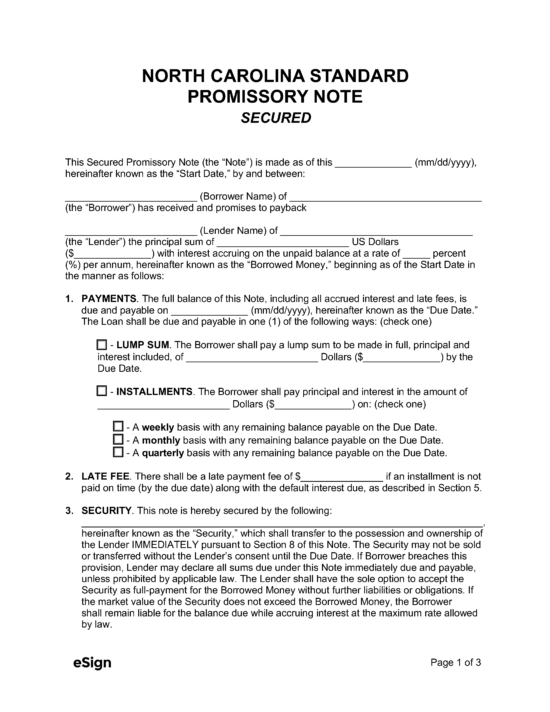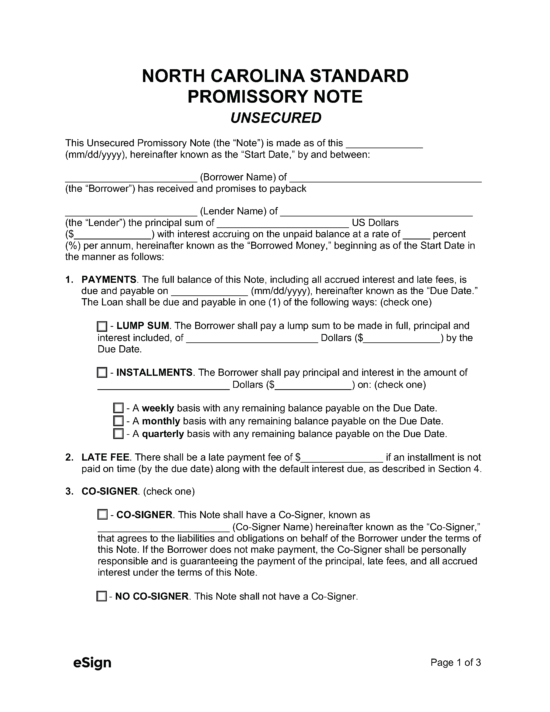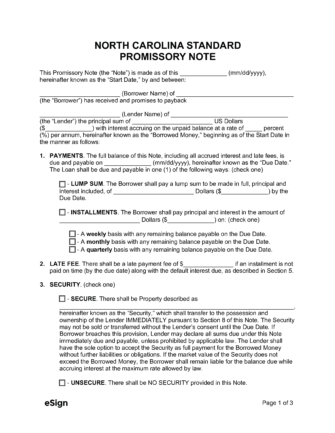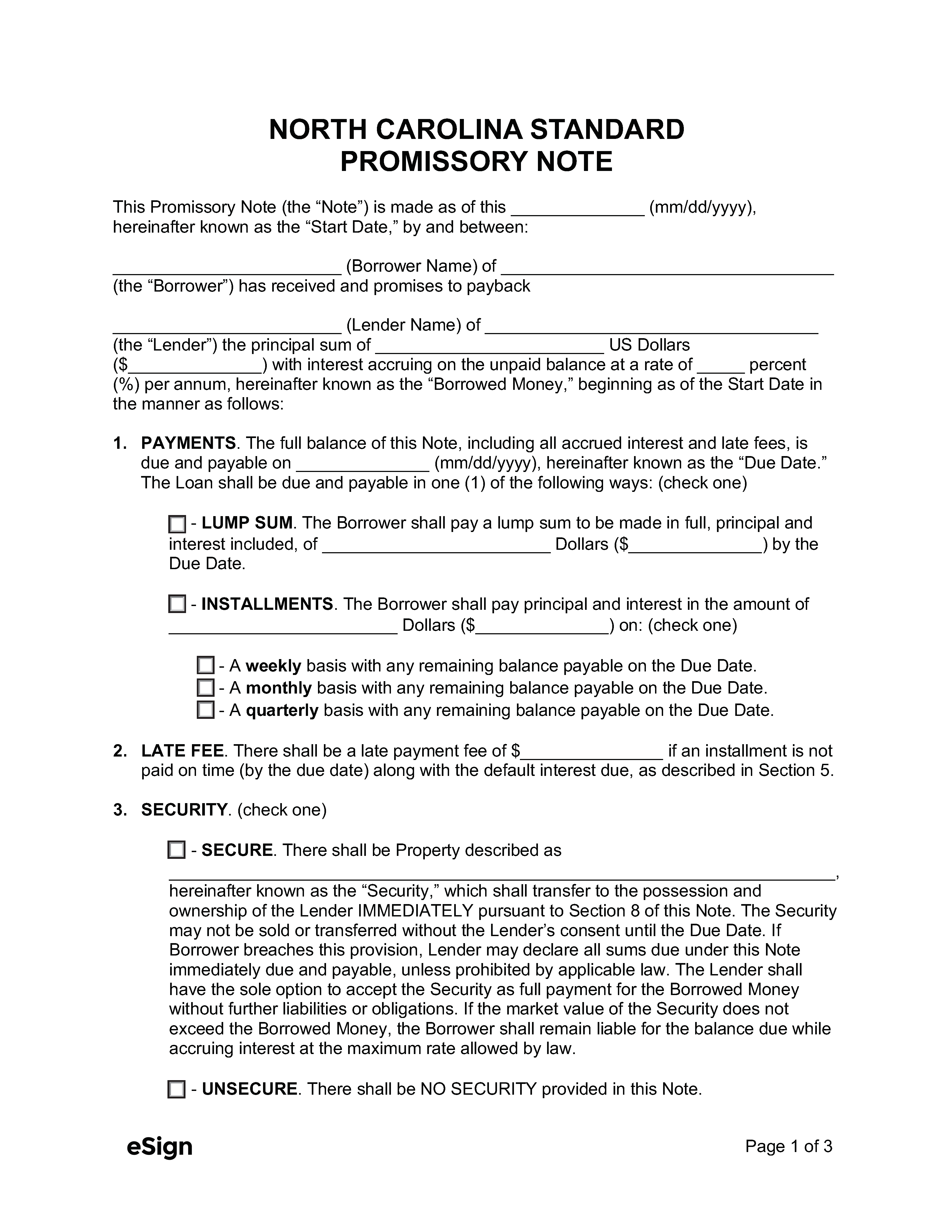Types (2)

Download: PDF, Word (.docx), OpenDocument

Download: PDF, Word (.docx), OpenDocument
Laws
- Interest & Usury Laws: Chapter 24 – Interest
- Usury Rate with Contract (N.C. Gen. Stat. § 24-1.1(a)):
- For loans less than $25,000: Set by the North Carolina Association of Banks on the 15th of each month (it has been 16% since 1984).
- For loans more than $25,000: No limit
- Usury Rate without Contract (N.C. Gen. Stat. § 24-1): 8%
- Usury Rate for Monetary Judgments (N.C. Gen. Stat. § 24-5(a)): Contract rate, or 8% if no rate specified.

